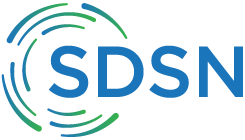Rationale and definition:
Urban households and businesses produce substantial amounts of solid waste (not including industrial, construction, and hazardous waste) that must be collected regularly and disposed of properly in order to maintain healthy and sanitary living conditions. Such collection can be through formal or informal means. Uncollected and improperly managed solid waste can end up in drains and dumps, and may result in blocked drains and other unsanitary conditions. Mosquitoes that spread disease can breed in blocked drains and dumps. In addition, some constituents of solid waste, such as organic matter, can attract flies and rodents that spread gastrointestinal and parasitic diseases.
Sustainable solid waste management is essential. This implies waste reduction, reuse, recycling and composting, incineration, and disposal in landfills. Waste reduction, recycling, reuse and composting are preferred methods and should be promoted, as they reduce demand on scarce environmental resources, decrease energy use, and minimize the quantity of waste that must eventually be incinerated or disposed of in landfills.
UN-Habitat has specified that solid waste collection can include (formal or informal) collection from individual households and regular dumpster collection, but not local dumps to which households must carry garbage.1 Solid waste collection should be considered regular and adequate if it occurs at least once a week.
Disaggregation:
This indicator can be disaggregated at the city and town level.
Comments and limitations:
In many countries and sub-national governments, solid waste collection and management data are currently incomplete or not available. The development of adequate data collection systems may require a significant effort in some jurisdictions. Indicator #74 (under proposed SDG 12) in the proposed SDSN framework addresses global food loss and waste, which could be used alongside this suggested indicator; alternatively, this broader formulation under SDG 11 could serve as a proxy for measuring food waste under SDG 12.
Preliminary assessment of current data availability by Friends of the Chair:
A
Primary data source:
Data on formal solid waste collection and management may be available from municipal bodies and/or private contractors. Informal collection data may be available from NGOs and community organizations.
Potential lead agency or agencies:
UN-Habitat and WHO at the city or national urban level.
Coffey, M and Coad, A (2010). Collection of Municipal Solid Waste in Developing Countries. United Nations Human Settlements Programme. United Nations Publications.

